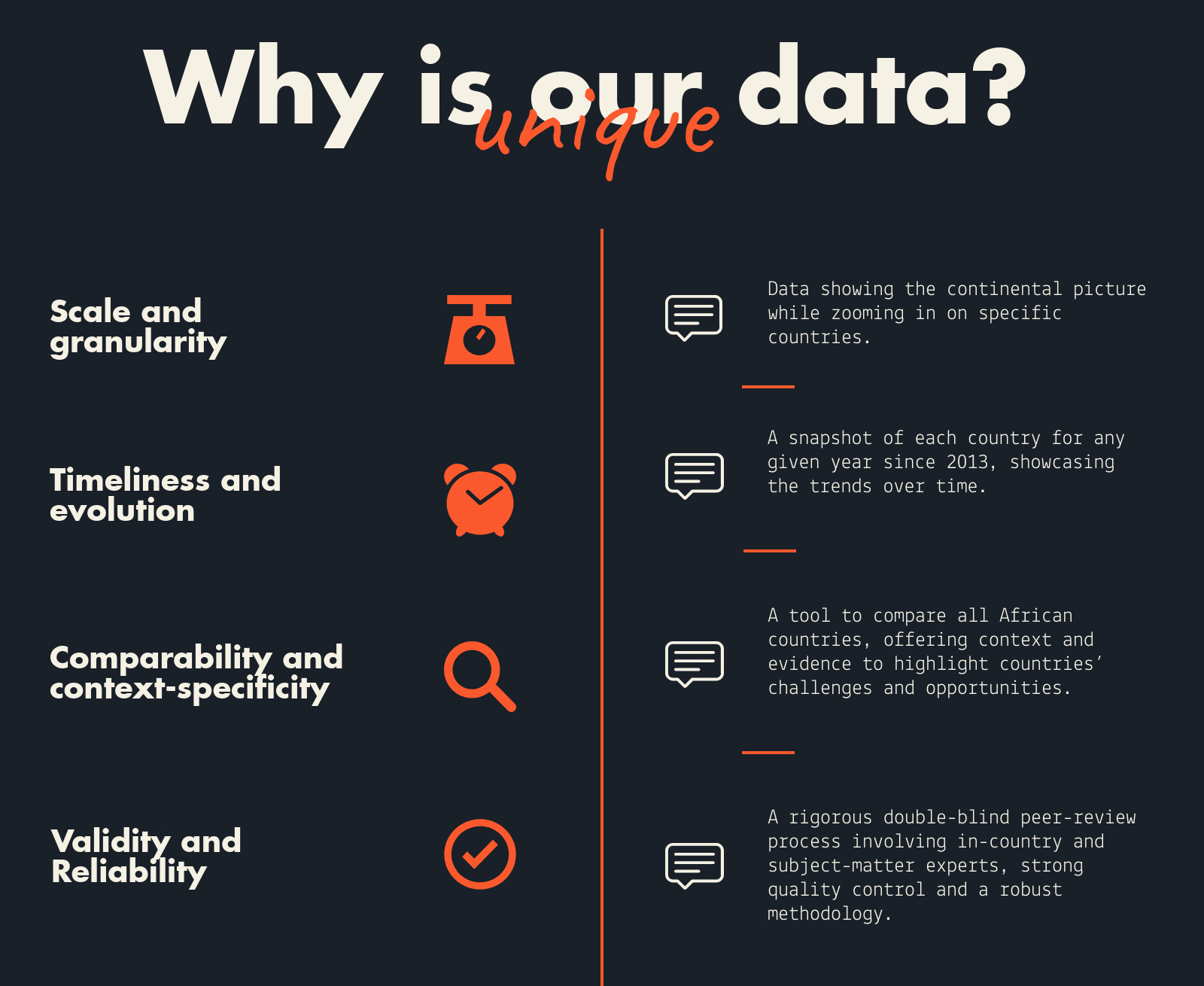This article was first published on the Global Integrity website here
Global Integrity is pleased to announce the release of provisional data for the seventh round of its Africa Integrity Indicators (AII), available here.
This provisional data is available for public comment until May 31, 2019. We invite interested stakeholders to examine the data and share any feedback that can help increase its quality and usefulness. Don’t be shy – We value your input!
Preliminary findings
Below are some of our preliminary findings, but stay tuned! In the upcoming weeks, we will be starting a conversation to better understand how our data could help support your work.
The independence of the judiciary is under threat: In several countries, notably Ghana and Kenya, governments have taken steps to hamper the independence of the judiciary.
Bypassing public procurement guidelines: While regulations are supposed to control public procurement, there is a surge of contracts awarded without competition in Liberia, Benin and Mauritania. In Kenya, allegations of corruption in public procurement are increasing.
Crackdown on the publication of information: While some countries made progress towards open publication of information (notably Ethiopia and Sierra Leone, with substantial improvement from last year), more countries regressed, experiencing more censorship and/or self-censorship of media organizations and citizens’ online content (social media, blogs, etc).
What is the Africa Integrity Indicators Project, anyway?
Every year since 2013, the Africa Integrity Indicators project assesses the state of governance and aspects of social development across all 54 African countries. It produces qualitative data through 102 indicators in 13 categories addressing transparency and accountability, as well as social development.
The Africa Integrity Indicators data is a stand-alone assessment published by Global Integrity. It presents snapshots of evidence for each indicator, providing a score, the justification, and supporting sources.
Our goal is simple: to build accurate and reliable data, with an interface that enables the data to be examined at the country level (say, by tracking a country’s progress over time with regards to one particular indicator), and at the subject level (say, by comparing different countries’ performance on one indicator).
We want our data to empower actors at the national and regional and international levels working to advance governance reforms, and to foster a discussion on how governance challenges can be tackled.
We also strive to be rigorous and transparent; you can find our methodology here.
What’s new this year?
Previous rounds have addressed both “in law” and “in practice” indicators. In this round, we decided to focus solely on the “in practice” indicators. This is because prior rounds have highlighted “implementation gaps,” or the lag between the adoption of regulations aiming to improve certain issues, and the actual improvement on the ground.
So this year, we are prioritizing citizen’s experience in practice. (Don’t worry, we’ll include updates on the laws every three years to make sure we capture big changes and continue to provide a basis for assessing the implementation gap, a measure which we continue to feel provides an important starting point for understanding whether and why gaps persist, and what might be done to close the implementation gap).
How is our data unique?

How can you use our data?
Our work has been used by several institutions. Data that we collect against a number of questions feed into the Ibrahim Index of African Governance and into the Worldwide Governance Indicators (WGI) by the World Bank. Through the WGI, the data also provides the Millennium Challenge Corporation with information that informs its decisions about country eligibility for Millennium Challenge Corporation compacts.
But you can use our data, too!
Our dataset is a practical entry point for research, advocacy and action:
- Transparent: our methodology and sources are transparent, and data is open source;
- Efficient: for each indicator, scores make it quick and easy to identify patterns across countries and across time;
- Action-oriented: indicators are based on fact-based and country-specific qualitative research, which provides insight on what should be priorities for reforms.
This article was first published on the Global Integrity website here
Join the conversation!
We want to hear from you. Check out our preliminary data and give us your feedback. You have 2 months to help us improve our work!
If you have comments on specific facts and narratives or if you have suggestions related to the accuracy of our research, please contact us at aii@globalintegrity.org.
If you have general comments and suggestions about the usefulness of the data, how you use it, and how it can be improved, please submit your feedback in this form or the aforementioned email address. You can also connect with us on Twitter (@GlobalIntegrity).
